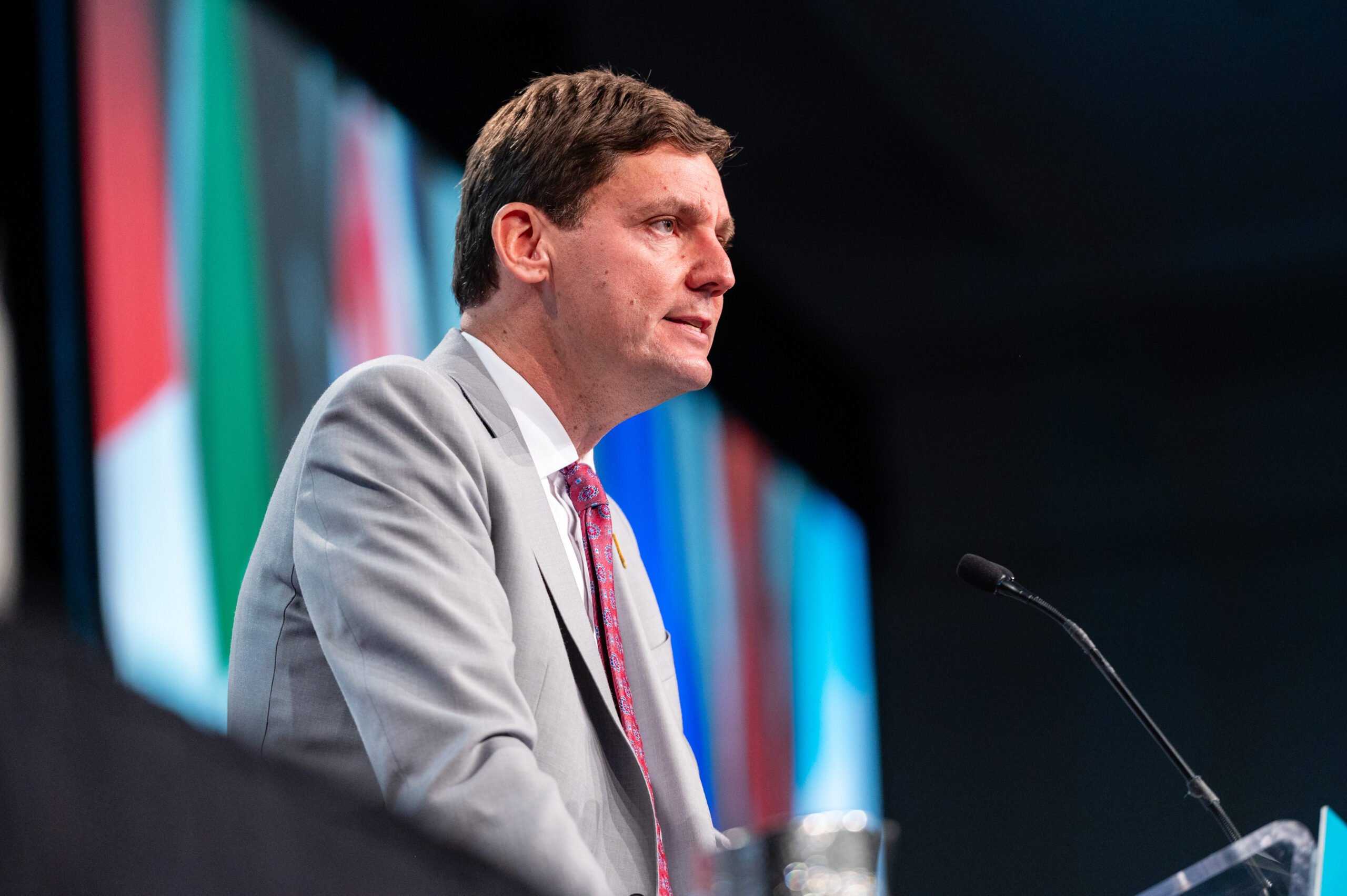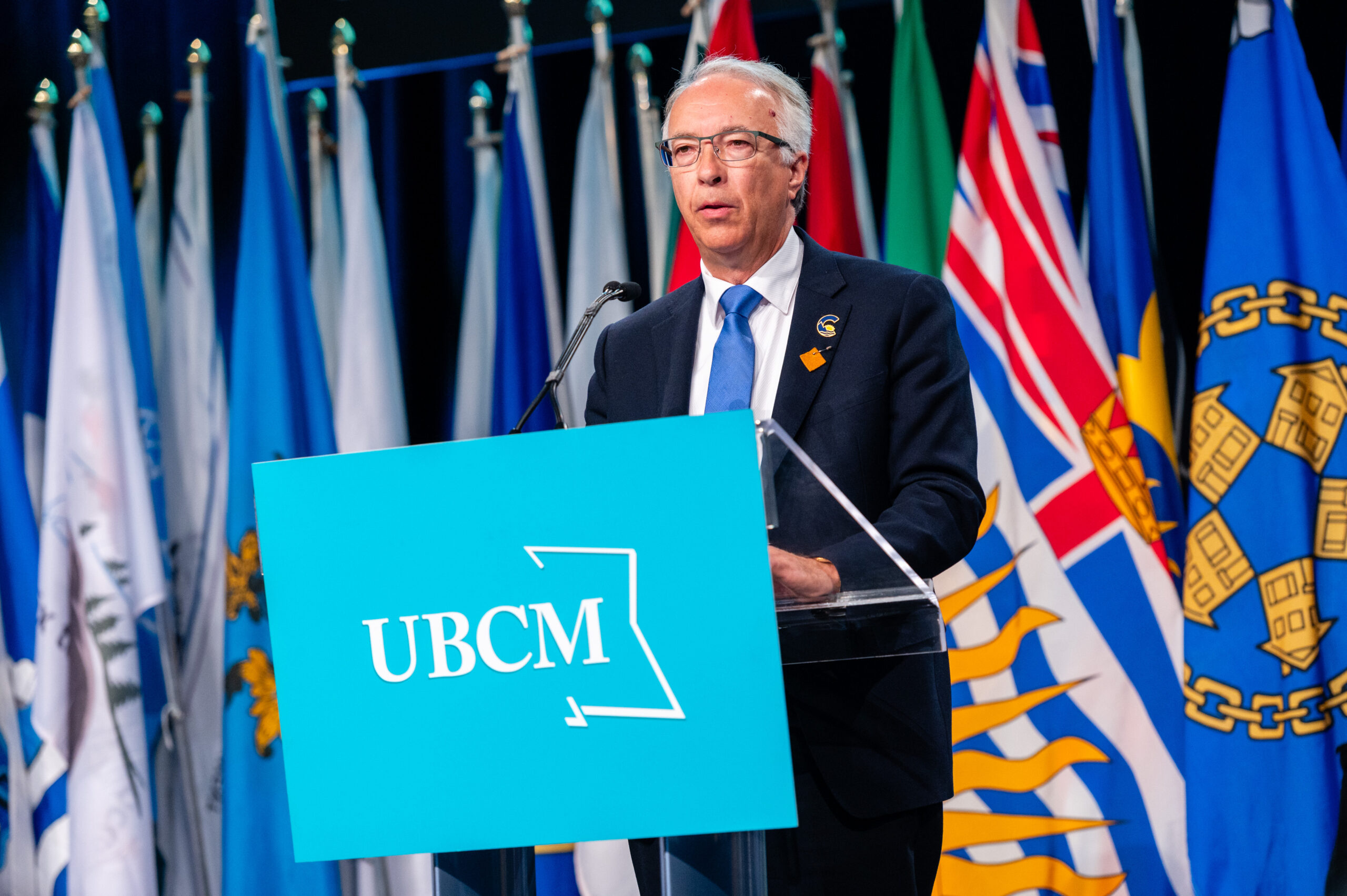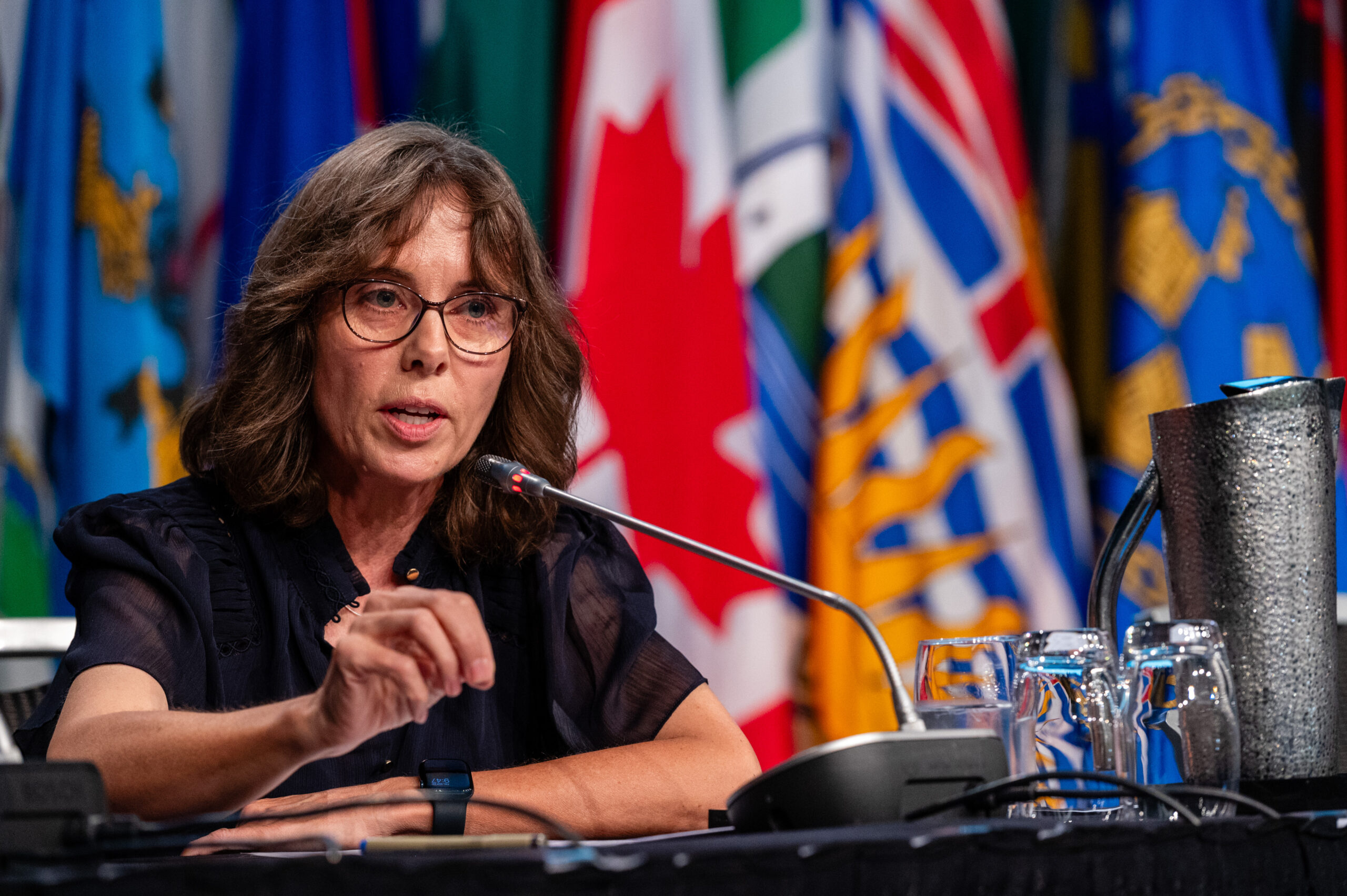
Bill 5: a guide to Ontario’s spring 2025 development and mining legislation
The public has a few days left to comment on Doug Ford’s omnibus development bill....
Get the inside scoop on The Narwhal’s environment and climate reporting by signing up for our free newsletter.
As the B.C. election campaign kicks off this week, mayors and councillors from across the province are sending a blunt message to the political parties vying to form government: don’t axe the carbon tax.
The final morning of the Union of BC Municipalities conference — an annual gathering where local elected officials mix with provincial politicians — saw delegates vote in support of an emergency resolution condemning NDP Leader David Eby’s pledge to scrap the consumer carbon tax if the federal carbon pricing program is repealed.
“This poses a threat to the effectiveness of the province’s climate strategy as an essential tool to reduce greenhouse gas emissions and transition the province to a low carbon economy,” stated the resolution, passed on Sept. 20.
Instead of doing away with the consumer carbon tax on fossil fuels, the resolution argues B.C.’s next government should overhaul the levy and give a large chunk of the revenue it raises to local governments to spend on climate mitigation and adaptation measures like transit, infrastructure upgrades and energy efficiency programs for homes.
“One of the biggest challenges that local governments are facing is climate change,” Trish Mandewo, a Coquitlam councillor and president of the Union of BC Municipalities, said in an interview.
“We are seeing that there is increasing frequency and intensity of extreme weather events, which means we are having to deal with diking infrastructure that is failing [and] significant upgrades to deal with all of those events, as well as keep the community safe and protect residents.”
The City of Abbotsford alone may need as much as $3 billion to upgrade infrastructure to withstand severe flooding like the catastrophic 2021 atmospheric river, she said.
Redirected revenue from changes to the carbon pricing regime could help municipalities properly prepare for future climate impacts, Mandewo said.
“We want to be part of that conversation,” she added. “If we’re going to be involved in the mitigation and in the implementation, then let us be part of the conversation so that we can make sure we come up with solutions that work for everyone.”

Eby, who addressed hundreds of convention attendees the day before the resolution’s endorsement, did not mention the hot-button issue of carbon pricing in his speech.
Eby’s conference appearance came one week after he surprised many British Columbians by promising a re-elected BC NDP government would eliminate the consumer portion of B.C.’s carbon tax, leaving the industrial levy in place, if the federal carbon pricing program is scrapped — something federal Conservative Party Leader Pierre Poilievre has promised to do if his party forms government.
In the lead-up to the election campaign, the BC Conservatives — led by John Rustad, who was kicked out of the former BC Liberal Party in 2022 for questioning climate change science — attacked Eby’s support for carbon pricing. Rustad called it a job-killing policy “that punishes workers, employers and ultimately, consumers.”
Eby’s pledge to get rid of the consumer carbon tax appears to be an effort to take the issue off the table for the election campaign.
During a question and answer session following his convention speech, Eby was asked how a re-elected NDP government would recoup revenue lost by eliminating the consumer carbon tax.
“I really feel that people are being put in a position … of choosing between taking climate action and supporting climate action and paying for the basics,” the NDP leader responded, declining to offer any specifics about the changes his party plans to make to B.C.’s carbon tax.
Rustad, who addressed the conference shortly after the emergency resolution passed, stressed his party will go much further than Eby’s in eliminating carbon pricing.
The BC Conservatives say they would eliminate the provincial carbon tax entirely and get rid of the low carbon fuel standard, a suite of regulations aimed at cutting the carbon intensity of fossil fuels.
The changes would reduce the price of a litre of gas by about 36 cents, according to Rustad, who has championed the “axe the tax” slogan since being ejected from the BC Liberal Party (now called BC United). Rustad stayed on as MLA for Nechako Lakes and resuscitated the BC Conservative Party, which had not held a seat in the legislature since the 1970s.
Like Eby, Rustad has stressed climate action policies burden people struggling to make ends meet. (Unlike his political rival, Rustad did not take questions from local government representatives following his speech.)
“Our goal as the Conservative Party of British Columbia is to make sure that we deal with the real crisis … which is affordability,” Rustad told reporters after his speech at the convention. “We need to put money back in pockets and that’s why we would eliminate both the carbon tax and low carbon fuel emission standards.”

Critics of carbon pricing often claim it drives up prices, a potent message at a time when many Canadians are worried about affordability.
However, the Bank of Canada estimated that carbon pricing accounted for just 0.1 per cent of Canada’s 3.9 per cent inflation rate in 2023 and 80 per cent of Canadians receive more money from carbon tax rebates than they pay in carbon pricing each year — in particular those with middle- or low-income status. In B.C., which has a separate carbon pricing system, about 65 per cent of households receive carbon tax rebates.
Another avenue of attack on carbon pricing is to cast doubt on its effectiveness at reducing emissions.
Carbon pricing alone won’t guarantee Canada meets its 2030 emission reduction target, but the federal policy would reduce emissions by as much as 50 per cent by 2030, according to the Canadian Climate Institute. That means cutting out 226 million tonnes of greenhouse gas emissions, mostly from industrial operations. While industrial carbon pricing is expected to curb emissions by 23 to 39 per cent, the consumer carbon price — which is paid on fossil fuels — would account for roughly a nine per cent drop in emissions.
Green Party Leader Sonia Furstenau lauded local officials for passing the emergency resolution, telling reporters it illustrates “a real disconnect between the provincial leaders of the other parties and what is happening on the ground.”

“We hear from elected representatives about the ongoing and incredibly expensive impacts of climate change-driven events,” Furstenau said. “We cannot at this point backtrack on the idea that carbon pollution doesn’t cost us. It costs us enormously … A price on carbon pollution is one piece of addressing that problem.”
The Greens have criticized the NDP for backing away from consumer carbon pricing but Furstenau has echoed Eby’s claims that the current program is “punishing people.”
B.C.’s carbon price needs to be “transparent and fair,” with its revenue going directly to benefit people and communities, according to Furstenau.
Whether or not the carbon tax survives the next year in B.C. — and regardless of what changes the next provincial government might make — Mandewo said she made clear to all three party leaders that the province needs to provide local government with a lot more cash to counter climate change.
“If the carbon tax is there or is not there, we are still looking for funding,” she said. “What we need them to know is that we need funding, that the gap is huge and that local governments cannot afford to do the work without the funding.”
Get the inside scoop on The Narwhal’s environment and climate reporting by signing up for our free newsletter. On a warm September evening nearly 15...
Continue reading
The public has a few days left to comment on Doug Ford’s omnibus development bill....

115 billion litres, 70 years to fix, $5.5 billion in lawsuits

Climate change, geopolitics and business opportunities power a blue economy
